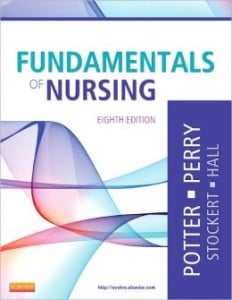During LPN School & Obtaining License

Needed LPN School Supplies
Before commencing your LPN program, it’s essential to undergo a cardiopulmonary resuscitation (CPR) class if you haven’t already. Typically, the school mandates a physical examination conducted by your healthcare practitioner, along with documentation of current immunization status. Schedule an appointment promptly, as you might need an influenza vaccine and a TB test.
To type up your school papers, you’ll require some form of a laptop computer. If obtaining one is challenging, your local library usually provides community computers. Additionally, there are specific items you’ll need to purchase separately, not covered by the tuition cost:

Struggling to meet your deadline?
Get your assignment on During LPN School & Obtaining License done by certified MDs and PhDs in the USA. ORDER NOW!
1. Nursing School Uniform – The school will specify their requirements, and you can purchase it from the designated uniform store, usually costing around $100.00.
2. Belled Stethoscope – A high-quality one, which costs approximately $75, can be bought online or at the uniform store. Investing in a handy holder like Stethosnap is recommended.
3. Nursing Shoes – Generally, white shoes are required, and they can be purchased at the uniform store for about $80.
4. White Stockings or Socks – Available at any general department store for around $10.
5. Bandage Scissors – Specially shaped scissors to prevent cuts to patient skin, costing around $20 at the uniform shop.
6. Penlight – Essential for checking eye pupils during neurological assessments, available at the uniform store or general department store for approximately $5.
7. Required Textbooks – The school will provide a list of necessary texts and workbooks, and it’s not mandatory to buy brand new ones. You can rent or purchase used textbooks, though costs can range from $500 to $1000 throughout the program.
8. Writing Utensils & Stationery – Including spiral paper notebooks, binders for each class, pocket spiral notebook for clinical days, and black pens (no blue).
For a more detailed understanding of the monetary costs of LPN schools and how to save, refer to our guide.
General LPN Courses:
1. Human Biology – Covers cell and muscle function, along with body anatomy.
2. College Composition – Aids in improving writing skills.
3. College Success Skills – Focuses on time management and efficient study techniques.
4. Microbiology – Provides knowledge about organisms causing illnesses and the corresponding antibiotics.

Nursing Specific Courses:
- Fundamentals of Nursing Care – Teaches essential nursing tasks, such as inserting a urinary catheter, starting an IV, administering medication, and maintaining infection control.
- Pharmacology and Drug Calculation– Helps in understanding medications and dosage calculations.
- Nutrition and Diet Therapy – Describes good nutrition, dietary needs during medical conditions, and cultural dietary needs.
- Introduction to Psychology – Discusses normal and abnormal psychological conditions.
Explore more about various LPN classes and curricula in our comprehensive guide on LPN school.
LPN Clinical Practicums:
This program involves both classroom learning and practical clinical skills. Areas covered include Medical-Surgical Nursing, Pediatrics, Maternal and Newborn Nursing, and Mental Health and Psychiatric Nursing. For each clinical day, preparation is crucial, requiring study ahead and readiness to answer questions about assigned patients.
- Medical-Surgical Nursing
- Pediatrics
- Maternal and Newborn Nursing
- Mental Health and Psychiatric Nursing
Time Management:
Efficient time management involves purchasing a daily calendar to organize classes, clinical practicums, tests, project due dates, work commitments, and other activities. Planning ahead and breaking tasks into manageable goals can contribute to success.
- 4 Days Prior – Get outline of paper done
- 3 Days Prior – Write first half of paper from outline
- 2 Days Prior – Write second half of paper from outline
- 1 Day Prior – Read the paper out loud, edit and retype as final
You can find additional tips on time management as a student at https://bigfuture.collegeboard.org/get-started/inside-the-classroom/8-ways-to-take-control-of-your-time
Preparing for LPN Class:
To facilitate learning, instructors provide syllabi and calendars detailing topics to be covered on lecture days. Reading relevant material before class enhances understanding, and rewriting notes after each class aids retention.
Studying for Tests:
Studying for tests requires time and practice. Considering potential test questions from an instructor’s perspective can guide your study approach. Useful study tips can be found at howtostudy.com.
Taking Care of Yourself:
Managing stress during LPN school is crucial. Tips include acknowledging difficulty, getting adequate sleep, maintaining regular and healthy eating habits, recognizing limits, indulging in relaxation activities, and allowing sufficient time for tasks.
1. Know your limits and when you need to let go.
2. Get enough rest and sleep. Sleep at least 6 hours and not more than 9 hours.
3. Allow plenty of time for a task.
4. Escape for a while through meditation, a book, a movie, or taking a short trip.
5. Stop, breathe, and tell yourself: “This is hard, and I will get through this 1 step at a time.”
6. Eat regularly and make healthy choices.
Working While Going to School:
While it’s possible to work while attending LPN school, realistic goal-setting and self-discipline are essential. Remembering your LPN goal during moments of fatigue and discouragement is crucial for success.
Waiting to Take NCLEX-PN:
Upon completion of the LPN program, the focus shifts to preparing for the National Council Licensure Examination for Practical Nurses (NCLEX-PN). This licensure test is mandatory for working as an LPN, showcasing your competency. Your LPN school may offer a practice class to review important material and practice test questions.
NCLEX-PN Process:
Before taking the NCLEX-PN exam, securing an Authorization to Test (ATT) is necessary. This involves applying to the board of nursing and registering through the National Council of State Boards of Nursing. The cost is approximately $200. Begin this process well in advance of the desired exam date. Familiarize yourself with the NCLEX test plan by reviewing the NCLEX Candidate Bulletin.
Scheduling the NCLEX-PN:
Once you receive your Authorization to Test (ATT) email, you are eligible to register for your NCLEX-PN examination either online or by phone. Visit the NCSBN website to find available test sites, but be aware that test centers can fill up rapidly. Upon registration for a specific date and time, detailed information about the test will be sent to you via email. It is crucial not to procrastinate in scheduling your exam, as waiting until your ATT is close to expiration may necessitate re-registration and additional fees.
About the NCLEX-PN:
The NCLEX-PN test comprises four sections, each covering topics relevant to the examination. The test is structured around four nursing areas:
1. Safe and Effective Care Environment – This section includes questions related to interventions safeguarding clients and healthcare personnel. Examples encompass informed consent, ethical practice, client rights, proper equipment use, standard precautions, transmission-based precautions, and surgical asepsis.
2. Health Promotion and Maintenance – Questions in this segment focus on normal growth and development, preventive measures, and overall health. Topics include the aging process, health screening, self-care, and physical assessment.
3. Psychosocial Integrity – This section incorporates questions about caring for patients during stressful events and mental illness. Examples involve end-of-life care, mental health and disorders, chemical dependency, and therapeutic communication.
4. Physiological Integrity – This part covers questions concerning physical health and patients’ activities of daily living. Topics include nutrition and oral hydration, rest and sleep, medication administration, diagnostic and lab tests, fluid and electrolyte imbalances, and illness management.
For detailed information about the test content, section breakdown, and question distribution, consult the NCSBN resource available at www.ncsbn.org/2013_NCLEX_RN_Test_Plan.pdf.
Test Day Preparation:
To maximize your chances of success on the NCLEX-PN, consider the following tips for test day preparation:
1. Be Prepared – Ensure you bring the required ID as specified in the email information.
2. Dress Comfortably – Leave hats, scarves, gloves, and coats outside the testing room.
3. Arrive Early – Plan to arrive at least 30 minutes before the exam. Being more than 30 minutes late may result in forfeiture, requiring re-registration and an additional exam fee.
4. Set Pace – The PN exam allows up to 5 hours, including a short tutorial and two optional breaks. Take your time to carefully analyze each question, as once you submit an answer, you cannot return to it.
5. Finishing Up – The test concludes with a short computerized survey. Afterward, raise your hand and wait for the TA to dismiss you.
Keep in mind that while the exam is graded progressively, scores undergo a second verification process. Your score is not immediately available at the test center. The passing standard, known as the “cut point,” represents the minimum competency required for safe LPN practice. This standard may change over time but is published on the NCSBN website and re-evaluated as necessary. Learn more about the exam day experience.
Getting your NCLEX-PN Test Results:
Some state boards of nursing participate in a Quick Results program, allowing you to view your results on the NCSBN website 48 hours after completing the test. However, only the state Board of Nursing can provide official results, which will be mailed to you six weeks after the NCLEX-PN test. The mailed performance report indicates whether you passed and provides details on your performance in each test section. For a sample performance report, visit www.ncsbn.org/Sample_CPR_PN.pdf. The State Board of Nursing then sends you a copy of your nursing license.
Failing the NCLEX-PN:
The NCSBN’s retake policy permits you to retake the exam 45 days after your last attempt, requiring payment of fees again. You can take the NCLEX-PN up to eight times a year but no more than once in any 45-day period. Explore more about retaking the exam and discover additional tips.
Getting an LPN Job:
While awaiting your NCLEX-PN results, take the opportunity to rest and rejuvenate. Reconnect with family and friends, travel, and unwind. It’s advisable to organize your school materials during this time. As soon as you can demonstrate evidence of passing the NCLEX-PN, either through Quick Results or a letter from the State Board of Nursing, you can start searching for an LPN position. Many organizations may hire you before receiving official test results, as you undergo their orientation process. Explore various LPN careers and LPN jobs for more information.

Dont wait until the last minute.
Provide your requirements and let our native nursing writers deliver your assignments ASAP.


